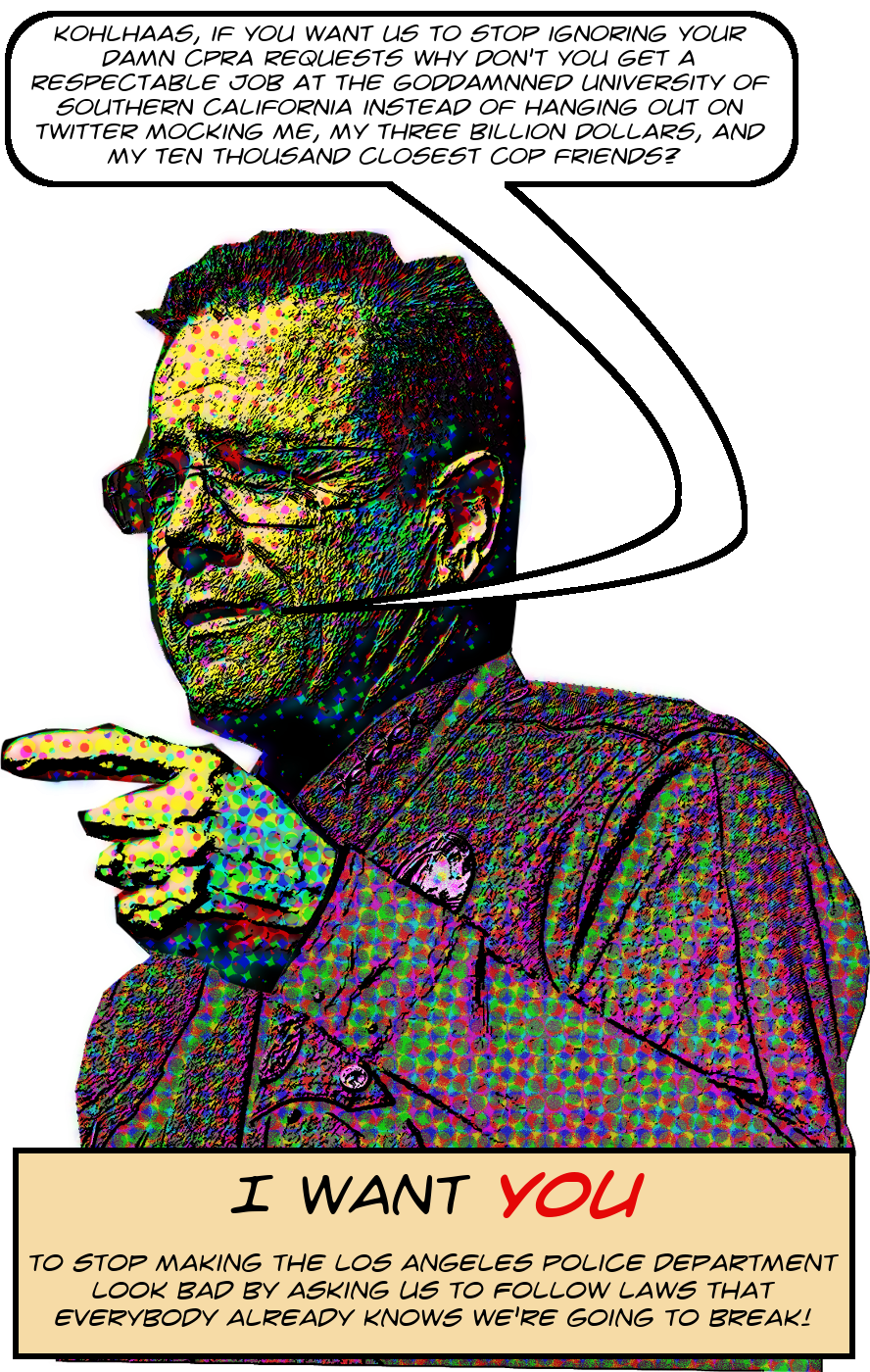 There is a lot of interesting stuff in the Los Angeles City Charter! And I didn’t realize it before, but the same is true of the Los Angeles Administrative Code! It turns out that the LAAC includes a local version of the California Public Records Act. This differs here and there from State law, and some of the differences are really interesting.
There is a lot of interesting stuff in the Los Angeles City Charter! And I didn’t realize it before, but the same is true of the Los Angeles Administrative Code! It turns out that the LAAC includes a local version of the California Public Records Act. This differs here and there from State law, and some of the differences are really interesting.
Let’s take a look at LAAC §12.21. This is the local version of CPRA §6254, which is the main list of exemptions. The infamous §6254(f) is the so-called investigative exemption, which basically allows the cops1 to refuse to release any records which can properly be described as “investigatory or security files.” And the local LA version, found at LAAC §12.21(f), is roughly the same albeit localized.
With at one exceedingly important exception! But before that, some background! The LAPD Public Disorder Intelligence Division was established by Chief Edward Davis in 1970, apparently as a reaction to the Watts Uprising in 1965. The PDID infiltrated hundreds of progressive political groups and also spied on electeds from the Mayor to the City Council.2 According to historian Max Felker-Kanter:3
The PDID operated as an updated Red Squad gathering “practically all” information on “potential threats” and storing as much information as possible. It was, in other words, a comprehensive surveillance program that significantly expanded the department’s intelligence operations.
Continue reading In 1983 Public Opposition To The LAPD Political Espionage Unit — Public Disorder Intelligence Division — Was Strong Enough That The Police Commission Dissolved It — And Then-CD5 Repster Zev Yaroslavsky — One Of The Politicians Spied On By LAPD — Sponsored An Ordinance Which Excluded PDID Intelligence Files From The Much-Hated Investigative Exemption — Which Means All Of Them Must Be Released On Request! — Unless They’re Exempt For Other Reasons Than Investigative — But Even More Interesting — Maybe One Of The Most Interesting Things About The Los Angeles Administrative Code — Is That Yaroslavsky Specifically Precluded LAPD From Making A Burdensomeness Exemption Claim — Which Says That In 1983 LAPD Was Making Exactly The Same Kinds Of Bogus Exemption Claims They Love So Much Now — But Not About These Spy Records!!

